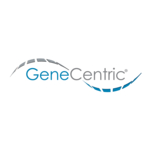
GeneCentric Therapeutics Announces Publication of New Results Showing Clinical Benefit of RNA-based Antifolate Predictive Response Signature (AF-PRS) to Guide Lung Cancer Treatment Selection
The Piedmont Study, a Real-World Data Analysis in Patients Treated with Platinum Doublet Chemotherapy and/or Pembrolizumab, Identifies Predictive Biomarkers for Approved First-Line Treatments in NSCLC
DURHAM, N.C.--(BUSINESS WIRE)--#GeneCentric--GeneCentric Therapeutics, a company making precision medicine more precise through RNA-based diagnostics, announced today the publication of initial results from the ongoing Piedmont study using real-world data in lung cancer to develop its novel RNA-based Antifolate Predictive Response Signature (AF-PRS), which is being co-developed as a clinical diagnostic test with Labcorp. The retrospective analysis was published in the peer-reviewed journal Clinical Cancer Research,1 a journal of the American Association for Cancer Research.


The initial analysis focused on non-squamous non-small cell lung cancer (NS-NSCLC) patients treated with standard-of-care (SOC) pemetrexed/platinum doublet chemotherapy. Results showed over half (53%) of patients that were AF-PRS(+) had extended progression-free survival (PFS) versus those who were AF-PRS(-) (16.6 months vs. 6.6 months; P=0.025). Furthermore, the significant PFS difference was even more pronounced between AF-PRS(+) and AF-PRS(-) patients who were non-metastatic (36.2 months vs. 9.3 months; P=0.03). When examining clinical response to therapy, 79% of patients demonstrating a complete response were AF-PRS(+).
“With continued use of platinum doublet chemotherapy in patients with earlier-stage, non-metastatic non-small cell lung cancer, a question remains as to which regimen to employ,” said Kathryn Mileham, M.D., Piedmont Study Principal Investigator and Chief of the Section of Thoracic Medical Oncology at Atrium Health Levine Cancer Institute. “The recently published results from the Piedmont study provide clinical support for the use of the AF-PRS test and other RNA-based tools to provide a deeper understanding of how to select the right treatment for the right patient.”
The Piedmont study is a collaboration between Atrium Health Levine Cancer Institute, Labcorp and GeneCentric, evaluating real-world data and existing tumor samples from NS-NSCLC patients treated with various SOC therapies that include platinum doublet chemotherapy and anti-PD-(L)1 therapy. The AF-PRS is one of the signatures being developed into a diagnostic test in a previously announced multi-test strategic collaboration with Labcorp.
“We continue to see the promise in RNA-based diagnostic tests, as demonstrated by the initial results from the Piedmont study,” said Marcia Eisenberg, Chief Scientific Officer of Labcorp. “Our work with GeneCentric started with early investments almost a decade ago and continues today as we make great progress in validating the AF-PRS test and other RNA-based tests to potentially improve patient outcomes and quality of life.”
The clinical and genomic data analysis from the Piedmont study is ongoing. The AF-PRS test and associated lung adenocarcinoma (LUAD) molecular subtype classifier assay explored in the current study will support GeneCentric’s growing pipeline of novel RNA-based predictive response signatures and related tests. In addition, this real-world evidence dataset joins the expanding number of highly curated clinicogenomic datasets across multiple tumor types and therapeutics areas that GeneCentric has developed and deployed, in collaboration with pharmaceutical and biotechnology partners, to explore novel oncology therapeutic options and diagnostic tests.
About the Piedmont Study
Utilizing Atrium Health Levine Cancer Institute’s broad network of 25+ clinical centers that see around 20,000 new cancer cases per year, retrospective baseline clinical, demographic and clinical response data were collected on over 500 patients receiving systemic first-line treatment for locally advanced or metastatic non-squamous NSCLC. The primary focus of the study was a subset of approximately 250 patients with existing tumor samples who received either pemetrexed-containing platinum doublet chemotherapy, pembrolizumab (Keytruda®) or the combination of the two. Tumor samples underwent transcriptome RNA sequencing (RNAseq) and were analyzed using GeneCentric’s RNA-based Tumor and Immune Micro-Environment (rT(I)ME) Explorer platform, which is an integrated pipeline used to translate tumor biology insights into actionable genomic signatures predictive of drug response.
About GeneCentric
GeneCentric Therapeutics, Inc. is an RNA-based genomic solutions provider based in Durham, North Carolina. The company designed its technologies to parse the complexity of tumor and immune biology using its RNA-based Tumor and Immune Micro-Environment (rT(I)ME) Explorer platform to discover and develop signatures of responder populations to oncology therapeutics. GeneCentric commercializes its technology through strategic collaborations with pharmaceutical, biotechnology and diagnostics companies in applications throughout preclinical testing, clinical drug development and commercialization lifecycle phases. For more information, visit www.genecentric.com or follow us on LinkedIn.
1 Eisner JR, Mayhew GM, Davison JM, Beebe KD, Shibata Y, Guo Y, Farhangfar C, Farhangfar F, Uronis JM, Conroy JM, Milburn MV, Hayes DN, Mileham KF. Association of Antifolate Response Signature Status and Clinical Activity of Pemetrexed-Platinum Chemotherapy in Non–Small Cell Lung Cancer: The Piedmont Study. Clin Cancer Res 2023; doi: 10.1158/1078-0432.CCR-22-2558
Contacts
Robin Fastenau
Robin.Fastenau@GeneCentric.com
Editor Details
-
Company:
- Businesswire
